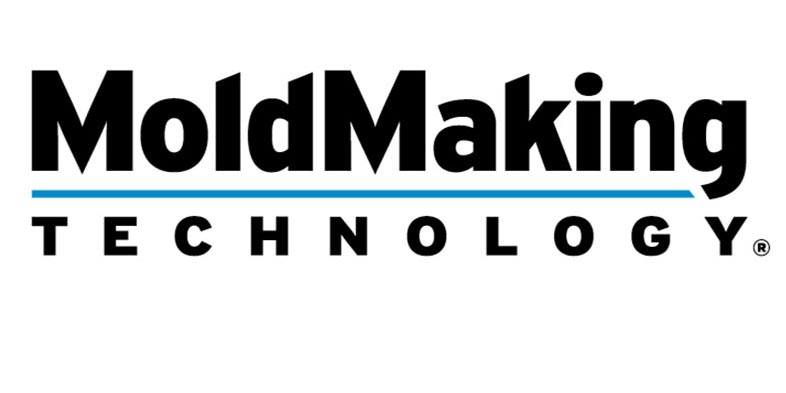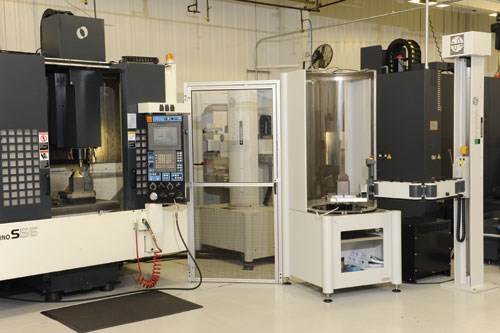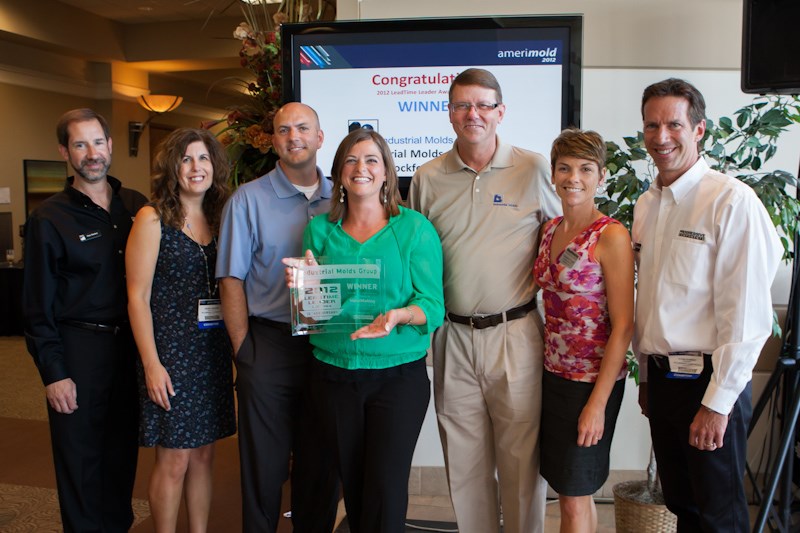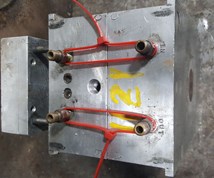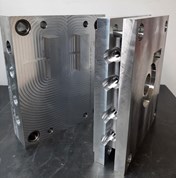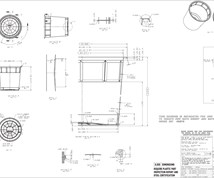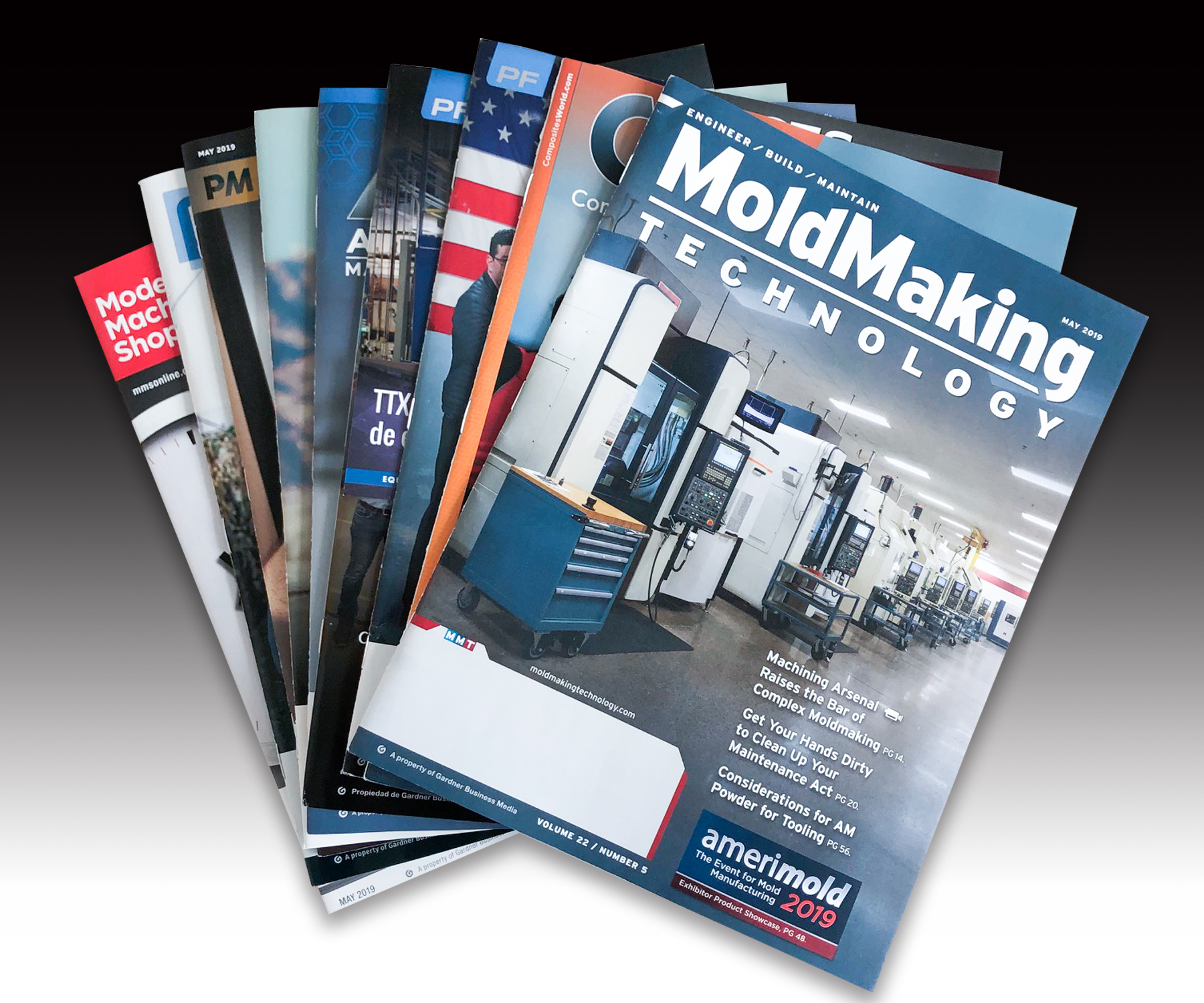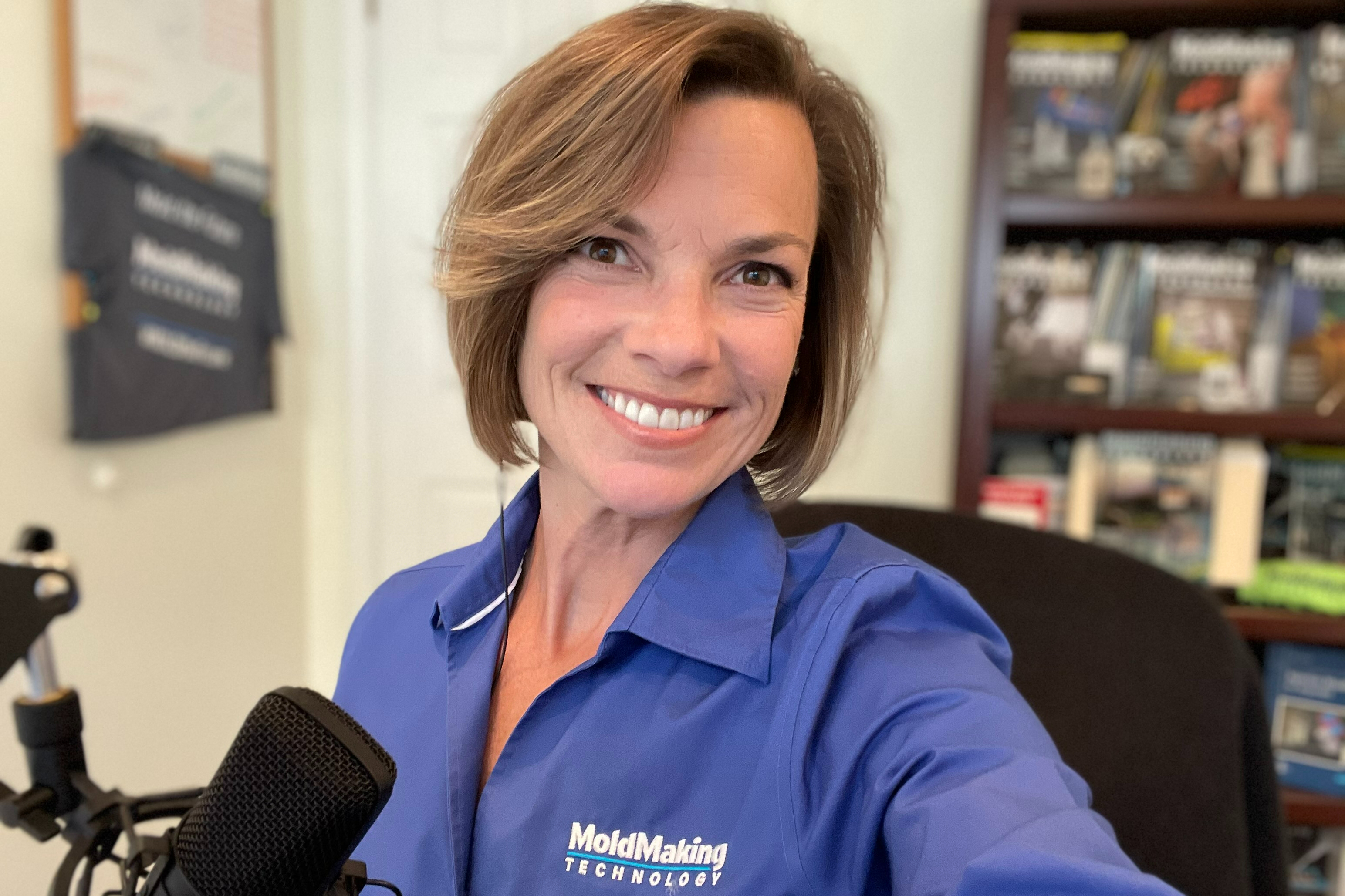2012 Leadtime Leader Awards: Industrial Molds Group
Appears in Print as: '2012 Leadtime Leader Awards: Industrial Molds Group: Thinking Outside of the Box'
Extensive investment in equipment, technology and its employees coupled with an innovative approach to its mold manufacturing process has earned this mold manufacturer the MoldMaking Technology 2012 Leadtime Leader Award.
#leadership #marketing #leadtimeleader
Industrial Molds Group’s (Rockford, IL) diverse offerings encompass the design, engineer and build of injection molds with complex geometries that range from single-cavity to 32-cavity high-volume molds; mold repair; prototypes and engineering changes (ECOs); MoldFlow analysis; and mold sampling and qualification. The company also has built quite a reputation for itself in the automotive industry as the provider of complex parts for Tier 1 and Tier 2 automotive suppliers.
The 55-employee company credits the addition of a Makino F-5 CNC high-speed machining center that completes the company’s hard-milling robotics cell—which also has an S56 Makino high-speed machining center—as a major factor in its eight-week average leadtime on projects.
Also serving the industrial, commercial appliance, medical, lawn and garden and packaging markets, Industrial Molds manufactures two-shot, insert and unscrewing molds. According to Industrial Molds Vice President Tim Peterson, the company’s business philosophy is based on service. “Our primary goal is to provide the best service possible, meeting our customers’ requirements with innovative, creative approaches that solve their manufacturing challenges,” he explains. We work every day to improve in every area possible from the front door to the production floor. We seek to provide a stable working environment for our team members, and offer them challenging work to increase job satisfaction in a team environment.”
Featured Content
Founded by Tim’s father Jack Peterson in 1968, the company was built on the philosophy that thinking outside the box, creativity and hard work were the keys to success, Peterson notes. Thus, in the late 90s, the company started to transition to a team-oriented approach in design engineering and mold development to shorten leadtimes, improve quality and meet customer requirements for faster time-to-market. “At that time we added our first automated machine for carbon,” he comments. “In 2002 we became ISO certified and have maintained our certification since that time.
We also added five-axis carbon cutting with a robot and two EDMs with a robot—equipped with Erowa’s job management system—to provide greater production efficiencies throughout the shop. Over the past three years, Industrial Molds has invested more than $1 million dollars in the latest state-of-the-art high-speed machining, EDM equipment and software. We have also invested in hiring and training the best moldmakers available.” Tim’s brother Eric serves as Operations Manager and John Kuntze is the CFO.
In addition, Industrial Molds realizes a similar investment must be made in its employees. “Any company can buy equipment, but it is the creativity of our engineers, the innovative thinking of our mold designers, and the precision skills of our machinists and moldmakers that make the difference—that put us on the cutting edge,” Peterson emphasizes. To that end, the company has a fully staffed Engineering Technology Center that provides state-of-the-art CAD/CAM software to provide product development assistance and ensure manufacturability of every component to optimize molding and produce parts in a cost-effective manner, Peterson adds.
To maintain its stringent leadtimes, the company relies on a combination of its ISO system and Lean Manufacturing principles. “With automation technology we schedule work so that the processes that take a long time we do unattended at nights and on weekends,” says Peterson. Industrial Molds also has the capability to cut graphite in the high-speed mill as well, which also helps fill the gap at night. The company’s automation implementation extends to the Quality Control department with a pallet receiver on the Brown and Sharpe Coordinate Measuring Machine (CMM). “The former process involved burning one set of electrodes, then probe for dimensional accuracy,” Peterson says. “We use the CMM to control the process.”
Industrial has reduced its average leadtimes by 50 percent over the last five years thanks to the aforementioned investments in equipment/technology and employees. “Other things that are giving us the ROI today are directly related to better training, understanding what the machinery and equipment can do and learning to optimize every piece of equipment we have,” Peterson says. “We discovered that even though we had the right machinery and equipment, we needed a quality system to help us with the production challenges. Our speed is directly correlated with the information we get—accurate information is key. When a mold project is released to us, a whole team of six or seven different departments becomes involved. The most difficult part of the mold build is the designing loop. We’ve been able to compact that down with early collaboration with the customer, and performing MoldFlow analysis to get it right from the start. We also invested in Windchill software (ptc.com) for better transfer of information.”
The company uses an outside marketing/PR consultant to develop press releases as well as a monthly newsletter that is sent to its database of customers and potential customers. Industrial also attends trade shows and has added a salesperson with great contacts in the medical market, an area in which the company is trying to grow more business.
“We value the diversification of the skills of our team members, and try to maximize these skills in various areas of our business,” Peterson concludes. “We always try to think outside the box on every new project that comes in. While some companies take a part design and make the mold that makes the part, we always try to optimize the mold and the molding process that we feel can help our customer get better productivity and efficiency, and reduce costs.”
RELATED CONTENT
-
How to Learn Mold Design Virtually
Plastics Engineering program instructors share their strategies for successful virtual learning for hands-on injection mold design.
-
2021 30 Under 30 Honors Program: Mentoring in the Next-Generation of Moldmaking Professionals
Young professionals are vital to the moldmaking industry, and it is important to acknowledge those making strides in shaping the industry's future. MoldMaking Technology recognizes the industry's young talent through its 30 Under 30 Honors Program.
-
Identifying and Examining Training Constraints
Finding, Training & Retaining Employees, Part 13


